Elodie Fromenteau is the founder, designer and Creative Director of fashion brand Izubaa , which is based in Rwanda’s capital, Kigali. The journey to establishing her own label has been both a personal and geographical one, having taken her from London, where she worked as an in-demand stylist, to Rwanda, the country she lovingly refers to as the motherland.
Text by Brian James
The Izubaa aesthetic draws from the eclectic street style that informed so much of her work in London, the rich and varied Rwandan culture which she has embraced since the return to her homeland, and a love of 1990s French tailoring which was instilled in her while living in France.
These influences have coalesced to create a label which gifts us both luxury suiting and streetwear. Garments for the conference or the club but which are infused with a duality of purpose where the most opulent suit can be perfectly paired with a motif T to impress on any occasion. Clothes made with a meticulous attention to the quality of the craftsmanship and underpinned by an ethical intentionality.
We discussed with Elodie about her latest collection “Ndabaga”and the cultural touchstones which inspired it, the cross-continental influences which have molded the distinctive Ibuzaa identity, and her aspirations for the future.
For people new to you and the brand how would you describe the Izubaa aesthetic and ethos
Izubaa is a luxury fashion brand that fuses 90s classic French tailoring with traditional Rwandan motifs to give a modern edge. Our vision is to take Rwanda’s culture to the world promoting craftsmanship and authenticity.
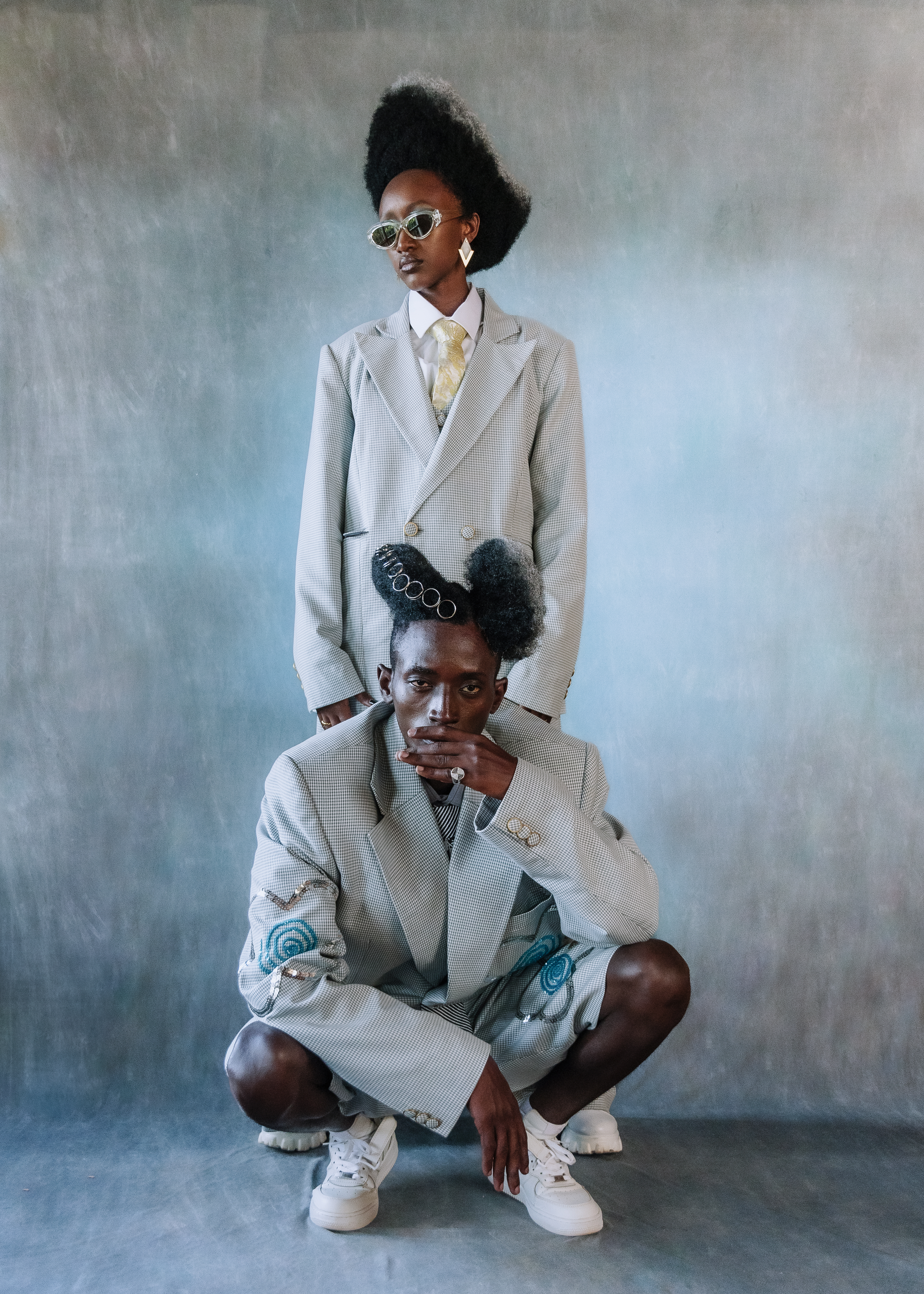
Congratulations on your latest collection “Ndabaga” which I loved. What was the inspiration behind it and what was it about the heroine’s story that resonated so strongly with you?
Thank you so much!
Ndabaga is the story of a young Rwandan girl who grew up as a single child not being able to see her father who was serving the King’s army. After hearing that her father needed a son to replace him, Ndabaga decides to change her appearance into a man, enduring all the training necessary to compete against her peers to eventually free her father from military duties. Months passed by until rumours reached the King’s ears, who confronted Ndabaga. Left with no choice, the young warrior admitted that she was indeed a lady. Instead of condemning her, the King saluted her bravery and asked the young lady to become his Queen. Ndabaga became one of the most renowned heroines of the 18th century in Rwanda.
Her story is still being taught at every school of the country and she has inspired many generations of women to fight for their rights. It was impossible for me not to connect to her story. Growing up, I was also very much of a tomboy; my mother used to tell me stories that around 3 years old I used to tell people that I was a boy!!! I was also very much of a daddy’s girl. Having lost my father 3 years ago, I just connect strongly with Ndabaga’s love for her father and how bold and courageous she was to free him from military duties.
Being a symbol of women and youth empowerment in the whole country, Ndabaga’s story aligns perfectly with the values of the brand, it was very important to me to share her story in my designs.
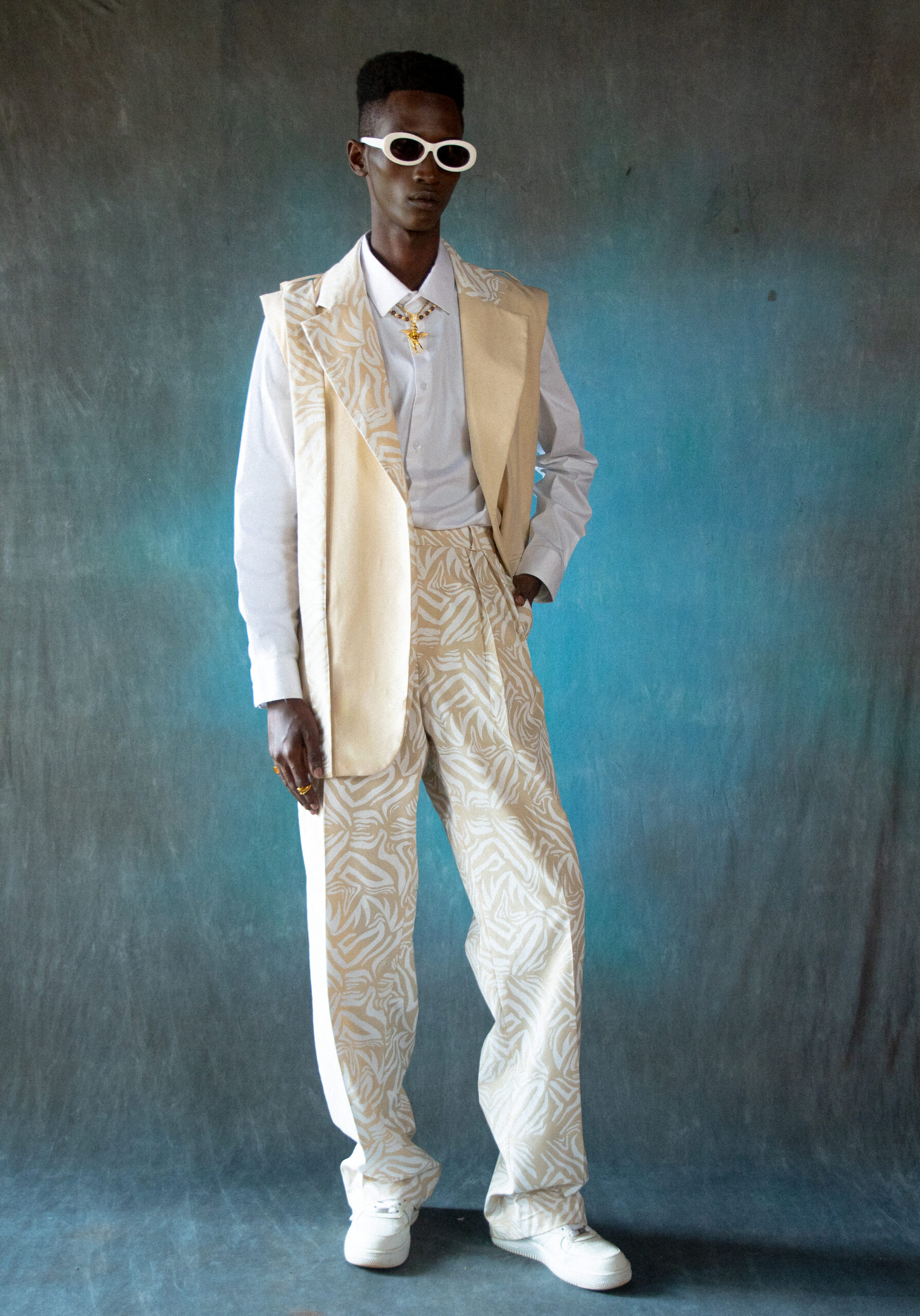
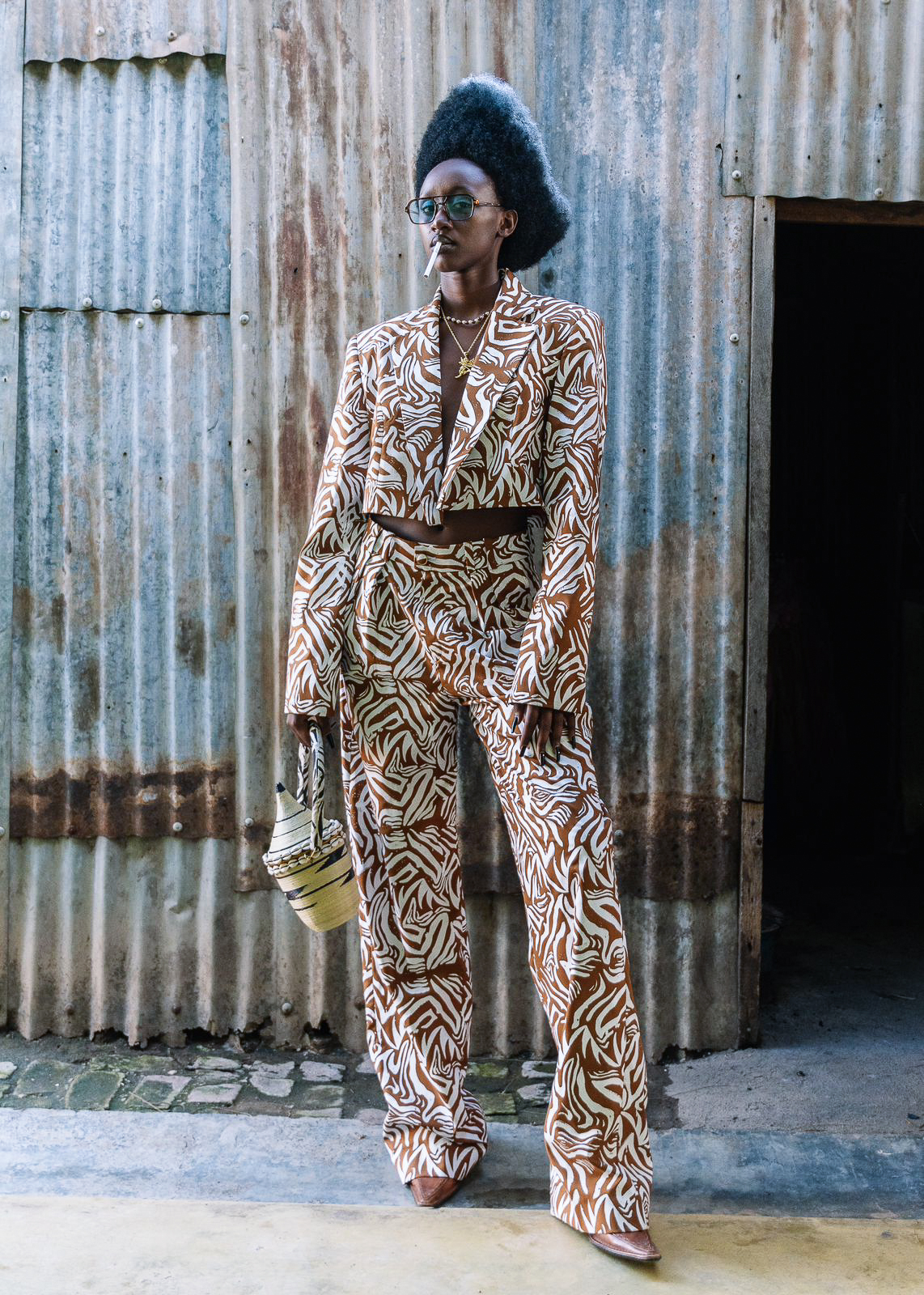
The collection melds luxury Italian suiting with more affordable streetwear pieces. Was it a conscious decision to include both these loves of yours in the one collection and how important is it to give your customer those options?
I somehow think that luxury suiting, and streetwear go so well together. I feel like “the young entrepreneur” wants to look like the boss that he is while keeping his comfort and fashion. There’s something very current about suits and streetwear. Not that I designed them to be paired together but I like to give my customers options. You can either rock your suits from Monday to Friday and keep your streetwear for weekends or just mix them together! (Which of course depends on the kind of jobs that you do)
How do you want the person who wears Izubaa to feel about themselves and the world around them when they put on one of your pieces?
I want them to feel free and powerful in who they are. I want them to feel like they can take on anything in the world, that nothing can stop them from achieving their wildest dreams.
“Ndabaga” showed in Paris during March. What was it like to take the brand back to the country where you lived for many years?
It was quite emotional. I probably had to pinch myself twice! It was kind of surreal but also made so much sense. France is my dad’s country, but also the country where I grew up most of my life. So, returning to it as a designer who started her brand in Rwanda, felt pretty special.
Your two previous collections “Journey to Africa” and “Sunday Best” seem almost autobiographical charting your own personal and professional journey. What motivated you to change career from in-demand London stylist to Rwanda based fashion designer?
I guess it’s a bit hard to answer this question as nothing was really planned. I didn’t wake up one day and say I am going to Rwanda to become a fashion designer. It literally just happened! My friend challenged me to start a collection and to showcase it for Mercedes Benz fashion week Kigali back in July 2021. The show was cancelled due to the third wave of covid-19, and I was asked to go and showcase at Accra fashion week instead in December 2021. I took on both challenges and it was no turning back after. I sort of followed what my heart told me to do and that was the beginning of Izubaa!
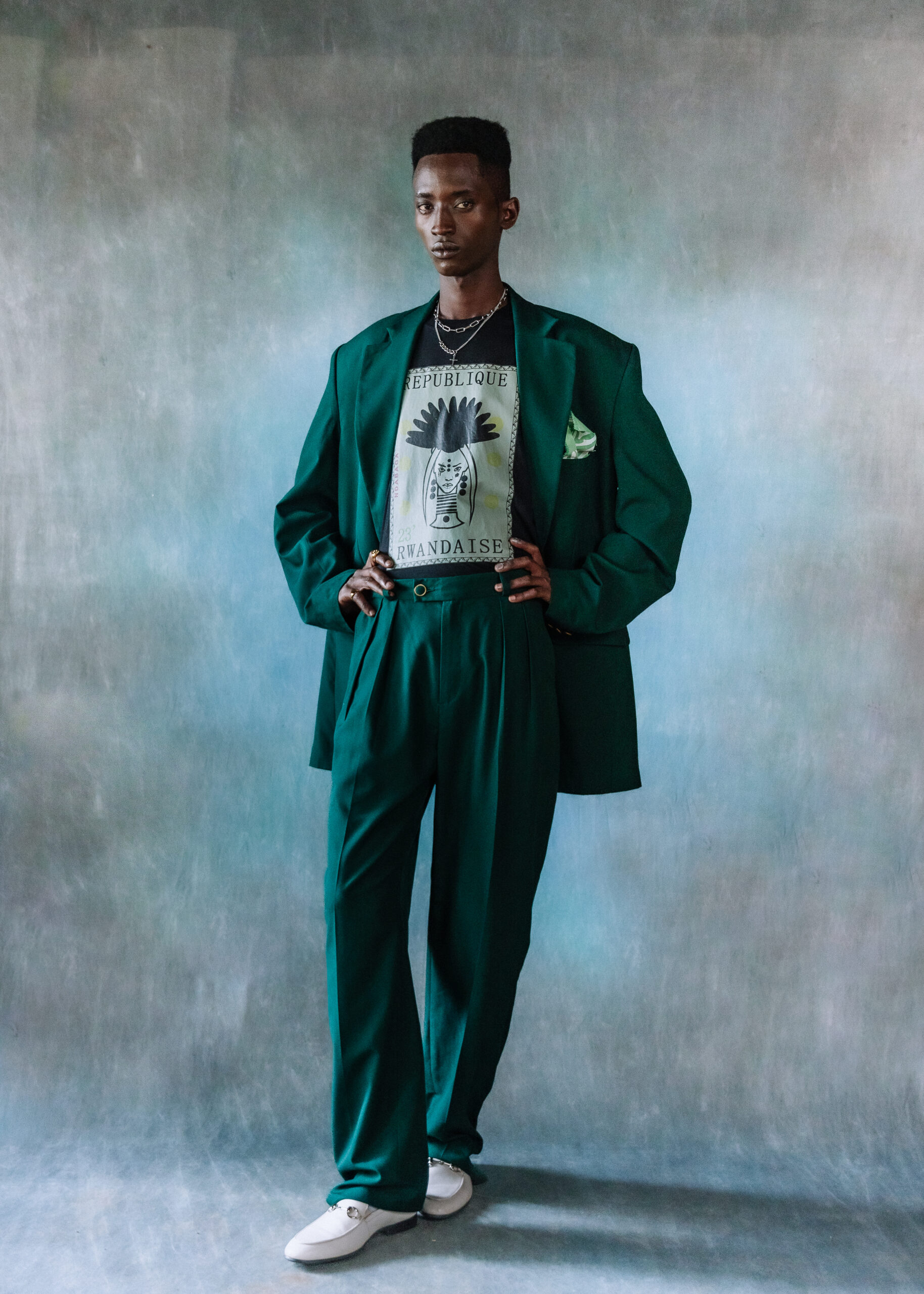
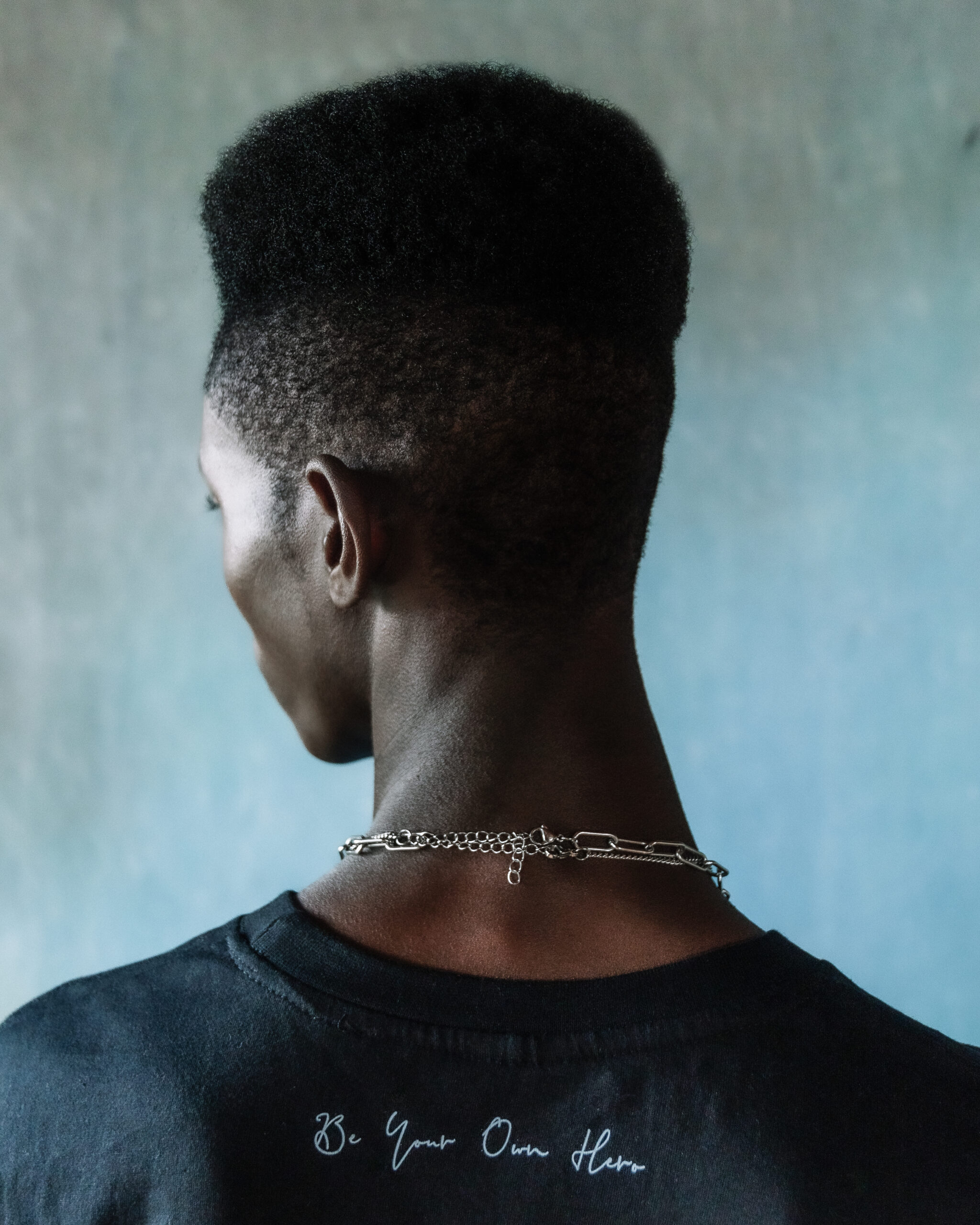
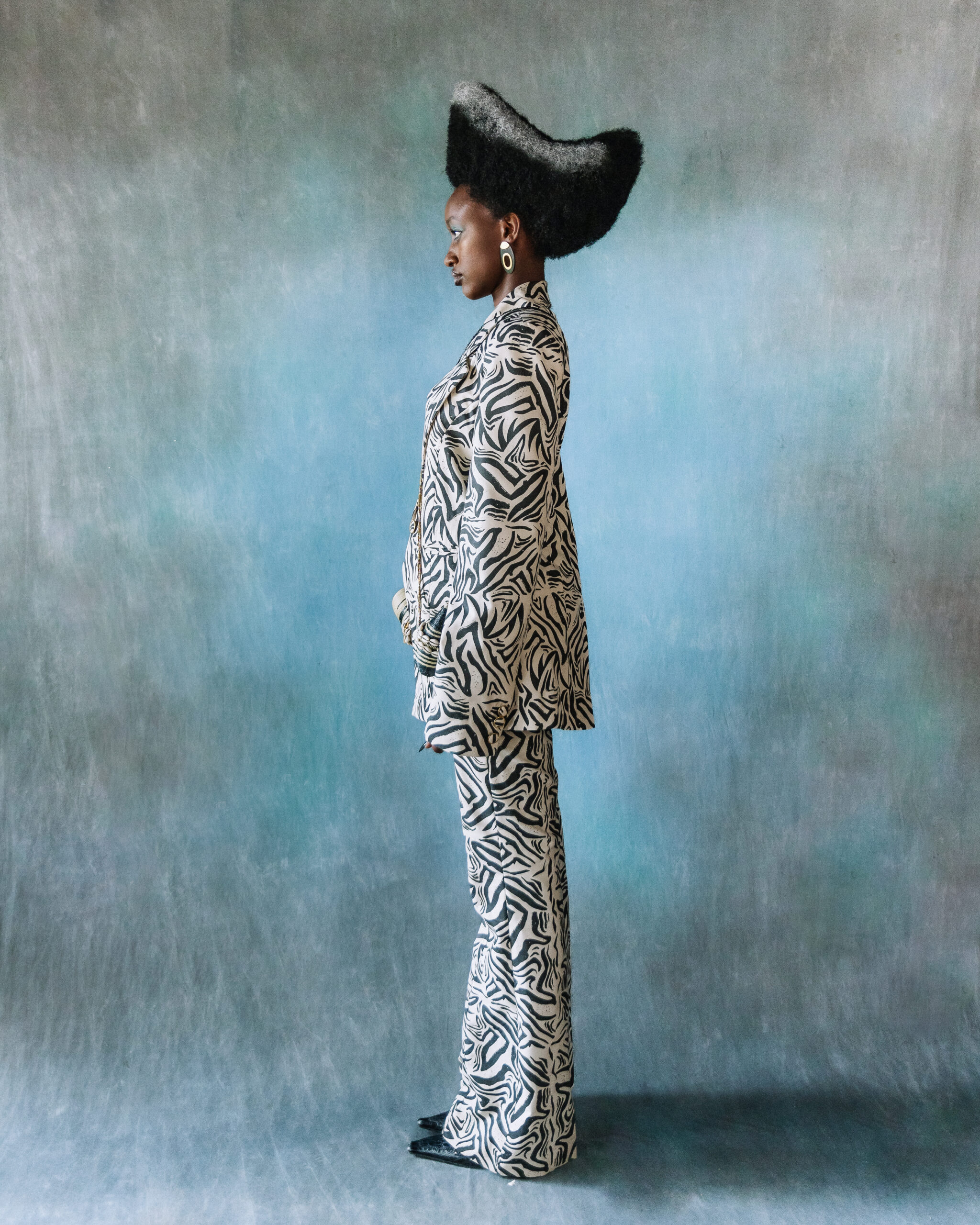
What advantages and insights do you feel that your previous styling career gave you when it came to starting your own label and navigating the world of fashion?
Styling gave me so much and still does. It is my first love and will always be. I feel like most people don’t really understand the job of a stylist, it is an art in itself. Whether you are styling an artist for a performance or a model for a magazine you truly need to bring the story you are trying to say to life and create a universe around it through clothing and accessories, inviting the viewer to be a part of it.
With the knowledge I acquired in London, it of course, gave me so many advantages when starting my own brand. I tend to envision the whole look when I design something. I think being an art director also helped me a lot in terms of storytelling. I learnt the importance of not just designing pretty clothes but truly telling a story and making a collection that is as cohesive as possible.
If you could dress any celebrities or public figures in Izubaa who would it be and why?
First, I would like to dress His excellency President Paul Kagame and the First Lady Jeannette Kagame, simply because they represent so much for the country and for the whole continent. I have so much respect for them and the work they have been doing, taking Rwanda to the level it is now, is truly admirable.
Second it will be Rihanna and Asap Rocky, just because I love them as individuals but also they are such a power couple. They would embody the brand so well. IZUBAA being mostly genderfluid and oversized with bold prints, they would rock my designs like nobody else.
How important to you is it that your brand represents and promotes Rwandan culture and craftsmanship?
When I decided to come visit Rwanda two years ago, my intention was to submerge myself in the culture. My first collections were really about my return to the motherland without diving into the culture as much as I am doing in this last collection. I guess the more I grow as a person, the more the designer in me wants to discover more stories of what makes our culture so special. Our craftsmanship is also something beautiful and so dear to our country, it deserves to be shared with the whole world. I hope that IZUBAA will allow me to do that in many ways, for many years.
Which designers have inspired you on the route to establishing your own brand and what advice would you give to anyone wishing to start a fashion label?
Virgil, Virgil, and Virgil!!!
I think I was watching a lot of Virgil Abloh at Louis Vuitton when starting my own brand. I still go back to his shows and interviews from time to time. He was for me the best creative director of his time. I also have a huge love for Yves Saint Laurent and “Le smoking” suit he introduced in 1966. I love the femineity and delicacy of Chanel too. Finally, I have to say Jacquemus, I love the passion and authenticity he puts into his designs, very poetic.
As for giving advice, I feel like I am still very young as a designer to do so; but if I have to say something it would probably be something like, stay true to who you are, design something that feels authentic and never give up on your dreams.
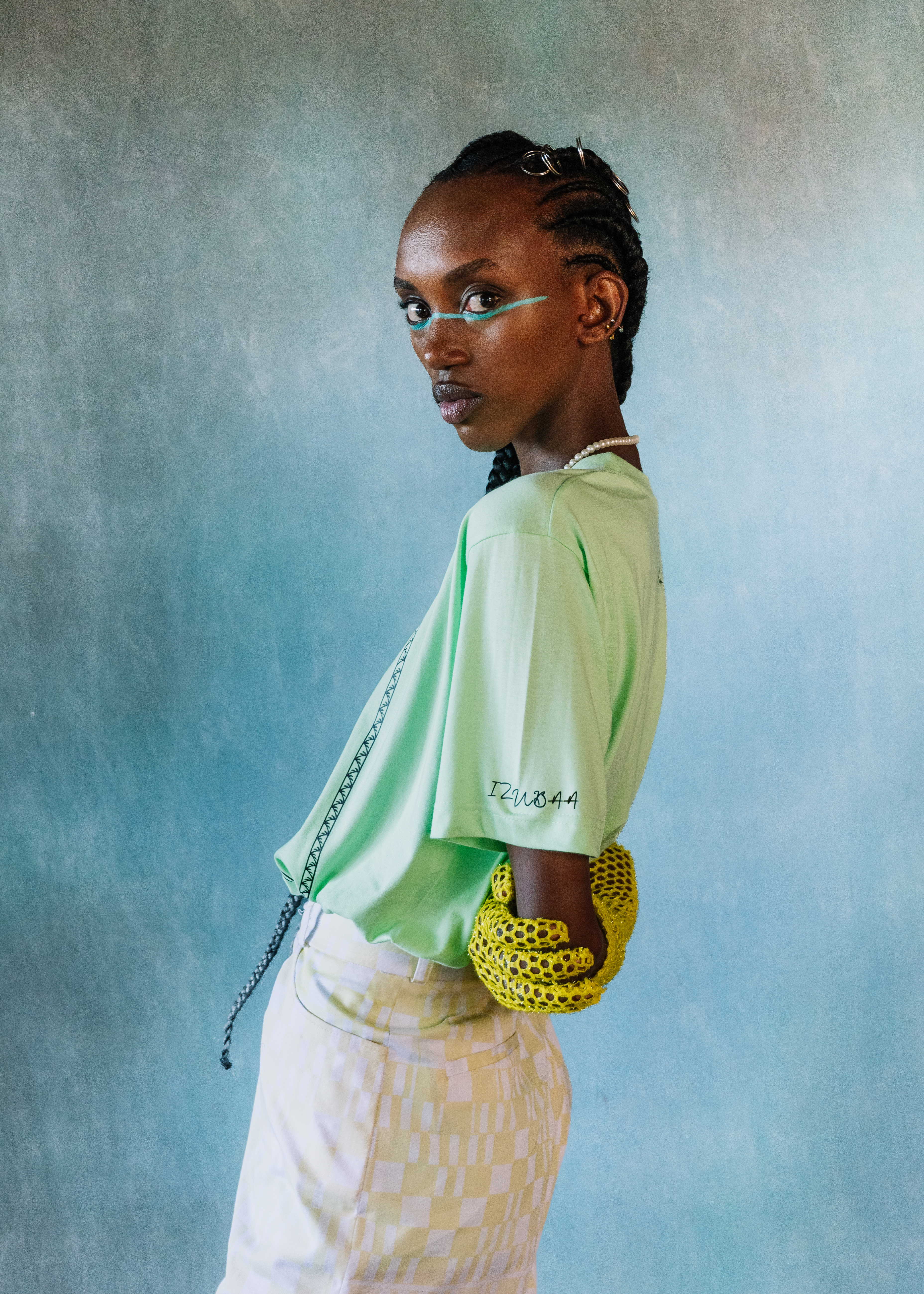
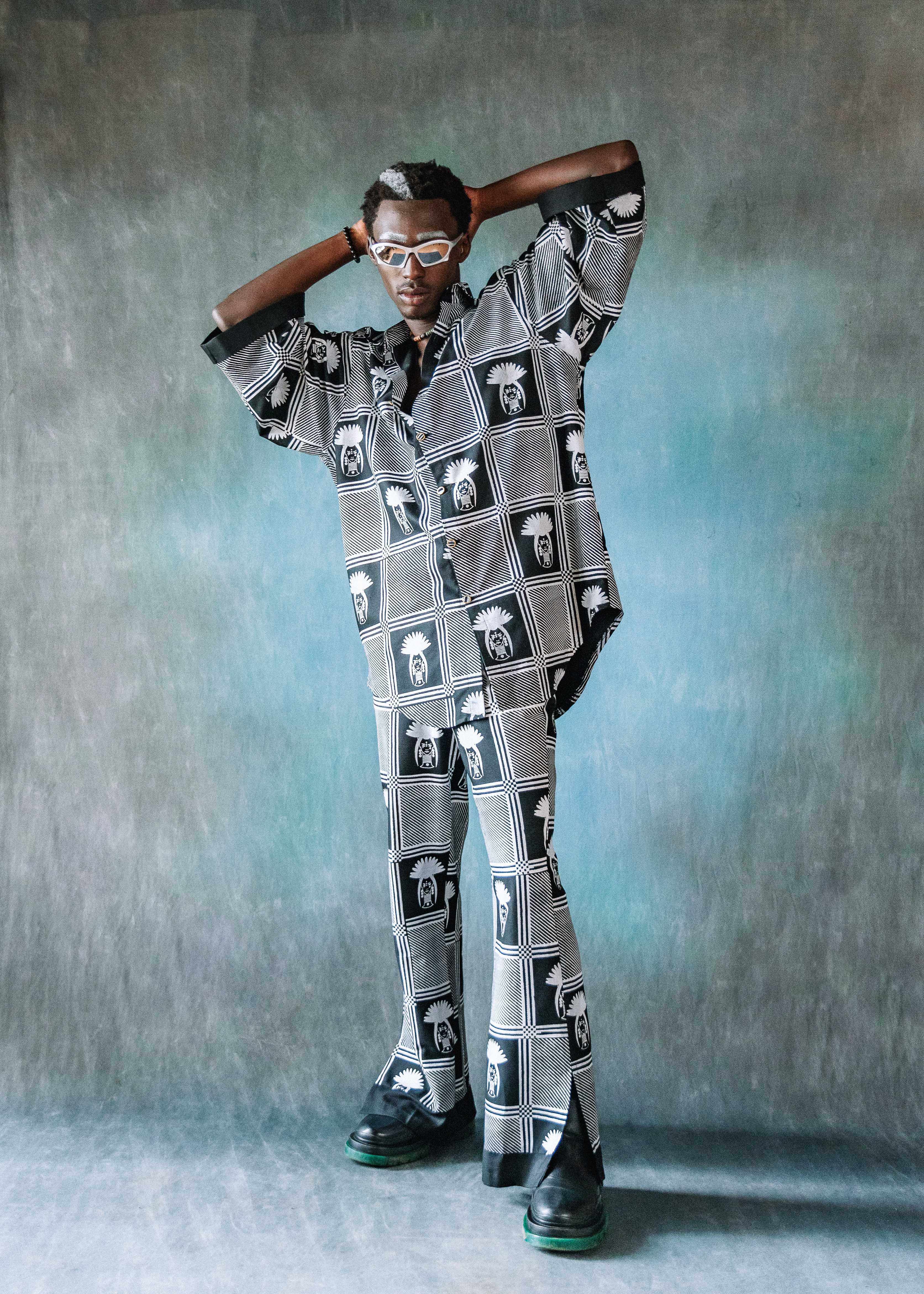
As we pass the midpoint of 2023 what are your ambitions and aspirations for the rest of the year and into 2024?
I am preparing a collaboration which I can’t reveal quite yet.
I also want to extend this collection and present our first solo show in Kigali soon. As for 2024, Lagos Fashion Week and/or a show in London would be pretty amazing!
Elodie Fromenteau is a designer who has married an encyclopedic knowledge of streetwear’s cultural codes with an artisanal appreciation of French heritage tailoring to create a label and a series of collections that cross cultural and continental borders with an elegant ease.
Establishing a brand which inhabits luxury terrain yet also gifts us streetwear that’s both contemporary yet classic is testament to the designer’s talent and the multiplicity of influences which she has melded to create the distinctive Izubaa DNA. Having immersed herself in the culture of her homeland, Elodie is now sharing that nation’s story with a global audience through her creations. The Izubaa story is one we feel is only just beginning and if razor sharp tailoring married with achingly cool streetwear is your thing, Izubaa is a label you will definitely want to get to know.
You can connect with the brand via their website and on Instagram .

